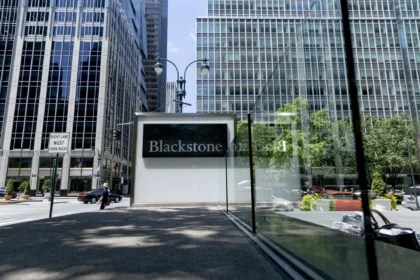Japan’s largest investment bank retreats from proprietary trading revival as market volatility, compliance hurdles, and internal restructuring reshape its global ambitions.
Japan’s financial giant Nomura Holdings Inc. has officially abandoned its plans to relaunch a proprietary trading desk in London, marking a significant retreat from one of its most ambitious post-crisis revival strategies. The move reflects a growing caution among global banks as they navigate an increasingly complex regulatory landscape, heightened market volatility, and evolving business models that prioritize stability over speculative returns.
- Japan’s largest investment bank retreats from proprietary trading revival as market volatility, compliance hurdles, and internal restructuring reshape its global ambitions.
- A Strategic Shift Away From High-Risk Trading
- Why London? Why Now?
- Nomura’s Broader Realignment
- Industry Context: Prop Trading’s Fading Allure
- Regulators’ Watchful Eye
- Market Reactions and Investor Sentiment
- Conclusion
The decision comes after months of internal debate within Nomura’s investment division, where executives had been exploring ways to rebuild a lean, high-frequency trading operation aimed at leveraging the firm’s global research and risk analytics strengths. But in the end, London’s strict post-Brexit financial rules and the inherent risks of proprietary trading proved too formidable.
A Strategic Shift Away From High-Risk Trading
Nomura’s decision to abandon its prop trading revival underscores a broader industry reality: the era of aggressive, balance-sheet-heavy trading that defined Wall Street’s pre-2008 boom years is largely over — or at least, out of favor with regulators and shareholders alike.
Proprietary trading, once a hallmark of elite financial institutions, involves firms using their own capital to speculate on markets rather than serving clients. While potentially lucrative, it also exposes banks to sharp losses and conflicts of interest — the very issues that led to tighter regulation under Dodd-Frank and the Volcker Rule in the U.S. and MiFID II in Europe.
For Nomura, the stakes were particularly high. The Tokyo-based bank has spent the past decade trying to recover from a series of global missteps, including costly exits from U.S. operations and losses tied to Archegos Capital Management in 2021, which wiped out over $2.9 billion in capital.
After years of restructuring, Nomura had hoped to re-establish a controlled proprietary strategy — not as a massive speculative arm, but as a small, research-driven trading desk aimed at generating consistent returns from quantitative and macro strategies.
However, according to insiders, the plan quickly ran into regulatory and logistical obstacles in London, where authorities have grown wary of banks re-entering high-risk trading activities without clear risk segregation.
Why London? Why Now?
London was initially seen as the ideal base for Nomura’s prop trading experiment. The city remains Europe’s largest financial hub, offering proximity to deep capital markets, a concentration of talent, and a sophisticated trading infrastructure.
Executives within Nomura’s Global Markets division reportedly viewed London as a strategic bridge between Tokyo’s risk appetite and Western market liquidity. A small team of traders had even been recruited to model potential strategies in foreign exchange and interest rate derivatives.
But as one senior source told Nikkei Asia, “The combination of rising compliance costs, limited balance sheet flexibility, and reputational risk made the economics impossible to justify.”
In other words, London’s regulatory regime — while still competitive — has lost some of the flexibility that once attracted global risk desks. Since Brexit, firms have faced duplicate oversight from both the UK Financial Conduct Authority (FCA) and the European Securities and Markets Authority (ESMA), increasing the cost and complexity of running cross-border operations.
Nomura’s Broader Realignment
The scrapping of the London prop desk is not an isolated move but part of Nomura’s global strategic overhaul under CEO Kentaro Okuda. Since taking the helm in 2020, Okuda has pushed for a more disciplined allocation of capital, focusing on wealth management, advisory services, and sustainable finance rather than high-risk trading ventures.
Nomura’s European operations have already been downsized in recent years, with multiple business lines consolidated into fewer regional hubs. The decision aligns with this capital-light transformation strategy, designed to stabilize earnings and appeal to long-term investors wary of volatility.
At the same time, Nomura is heavily investing in digital asset infrastructure, AI-driven trading analytics, and private credit markets — areas viewed as growth frontiers that can deliver returns without excessive regulatory exposure.
Analysts at Jefferies note that the firm’s “pivot toward technology-enabled finance is part of a generational shift in Japanese banking — one that seeks sustainable margins over speculative success.”
Industry Context: Prop Trading’s Fading Allure
Nomura’s retreat is emblematic of a broader industry recalibration. Major global banks — from Deutsche Bank to Credit Suisse before its collapse — have either shuttered or dramatically scaled back their proprietary trading desks in the past decade.
While hedge funds and high-frequency trading firms have taken over much of the speculative trading once dominated by banks, traditional financial institutions are increasingly positioning themselves as risk managers and advisors, not gamblers.
Still, not all institutions have abandoned the model entirely. U.S. players such as Goldman Sachs and J.P. Morgancontinue to engage in proprietary-style activities under tightly controlled principal investing units. Yet even those are framed as data-driven, low-leverage operations, not the aggressive trading arms of the past.
Nomura’s hesitation reflects the delicate balance many global banks now face — how to remain innovative without crossing into regulatory gray zones.
Regulators’ Watchful Eye
The FCA’s increased scrutiny over proprietary and algorithmic trading since the 2022 bond market turmoil has been a decisive factor. Regulators are increasingly concerned about systemic risks tied to leveraged trading strategies, particularly as markets adjust to higher interest rates and tighter liquidity.
London’s new post-Brexit framework has also placed greater emphasis on risk transparency and liquidity reporting, forcing institutions to dedicate significant resources to compliance. For a firm like Nomura — whose European operations remain under profitability pressure — the cost of re-establishing such infrastructure outweighed the benefits.
Market Reactions and Investor Sentiment
The market response to Nomura’s decision has been cautiously positive. Investors appear to favor the bank’s move toward conservatism, viewing it as a sign of disciplined risk management rather than retreat.
Nomura’s stock rose modestly following reports of the decision, reflecting confidence that the firm is staying aligned with its capital optimization goals. “In an era of heightened regulatory vigilance, pulling back from speculative ventures could help Nomura protect its reputation and focus on sustainable growth,” said a Tokyo-based analyst at Morgan Stanley.
However, some industry insiders lament that the move could weaken Nomura’s competitive edge in trading innovation, leaving it reliant on less volatile — but slower-growing — revenue streams.
Conclusion
Nomura’s abandonment of its plan to restart a London proprietary trading desk is both a reflection of changing market realities and a statement of corporate prudence. The bank’s decision highlights how the global financial industry continues to evolve in the shadow of the 2008 crisis — where risk control, compliance, and stability increasingly trump ambition.
For Nomura, the future lies not in reviving the speculative glory of its past but in building a leaner, technology-driven, and globally compliant investment model — one better suited to the financial ecosystem of the next decade.
As the age of the daring trader fades, Nomura’s withdrawal from London’s high-stakes scene marks not defeat, but adaptation.







